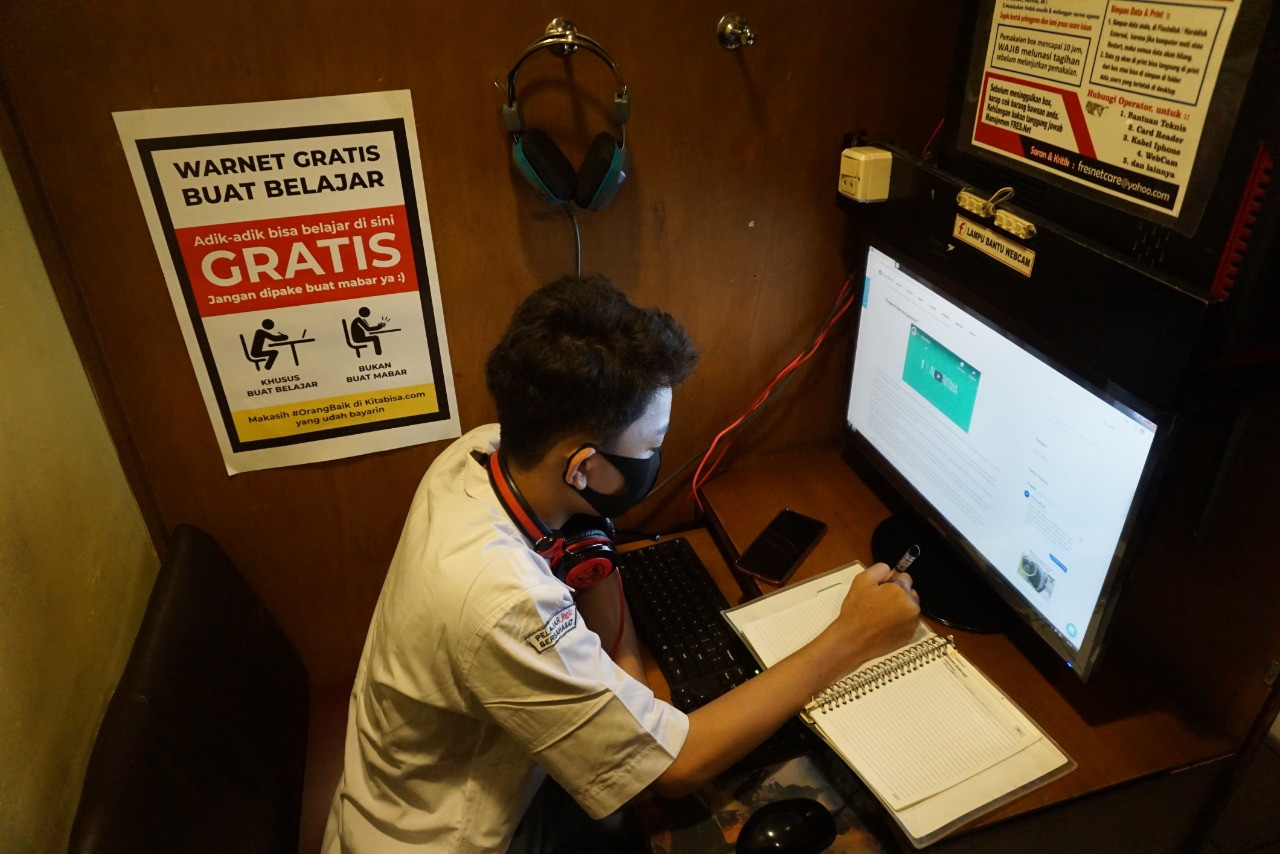Popular Reads
Top Results
Can't find what you're looking for?
View all search resultsPopular Reads
Top Results
Can't find what you're looking for?
View all search resultsLocal communities provide free internet, gadgets to students amid e-learning barriers
Change text size
Gift Premium Articles
to Anyone
A
mid the slew of technological and financial limitations that come with online learning, several local communities across Java have taken it upon themselves to provide students with free access to electronic gadgets and internet connectivity during the COVID-19 pandemic.
Karang Taruna Petamburan, a youth organization in Tanah Abang, Central Jakarta, for instance, has collaborated with nongovernmental organization Indonesia Resilience (IRES) and crowdfunding platform Kitabisa to open makeshift learning centers equipped with smart devices and wireless networks that local students are able to access for free, under the supervision of adult volunteers.
The learning centers, established at the At-Tawadhu mushola and Berase Art Studio, are expected to ensure a more seamless online learning experience for local elementary, junior high and high school students.
“We call them ‘Rumah Kembali Belajar’ [‘Learn Again Home’],” Kitabisa program manager Satria said in a statement on Thursday. “The initiative is the result of our concerns regarding the learning situation amid the pandemic, especially among students whose parents are informal workers.”
On-site volunteers are present to ensure strict adherence to health protocols among students over the course of the daily learning period, which runs from 6.30 a.m. to 2 p.m., from Monday to Friday, he said.
“Every part of the society has a right to education whatever the circumstances,” IRES executive director Hari said.
Read also: EXCLUSIVE: ‘Kids feel lonely’ amid extended remote learning period, Nadiem says
Similarly, internet cafes and popular haunts in Yogyakarta have also provided free internet access to local students during the online learning period, courtesy of the fundraising campaign that can be accessed at kitabisa.com/bisasekolah.
One local initiative has taken the innovative approach of providing mobile internet access aboard a vintage Volkswagen van that regularly goes around a number of villages across the region.
Dubbed “VW Combi Internet Keliling”, the van broadcasts a wireless internet signal as it drives around Sleman regency and Klaten regency from 9 a.m. to 1 p.m.
A survey conducted by the Indonesian Child Protection Commission (KPAI) in April involving 1,700 students and 602 teachers in 54 cities and regencies found that 42 percent of students could not afford internet packages, making it difficult for them to make video calls with their teachers.










